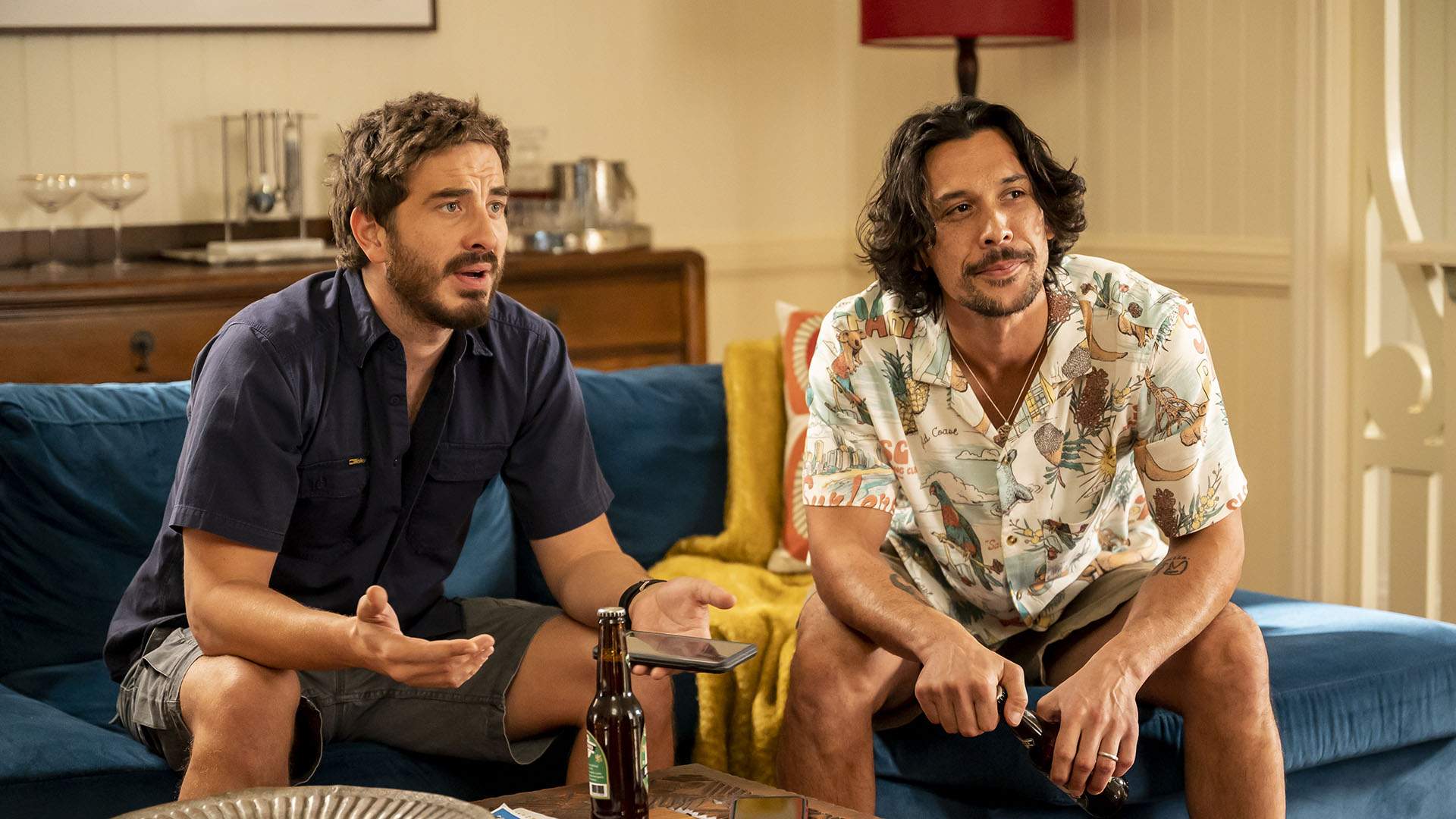From the Seven Kingdoms' Strongest Man to Embracing Vulnerability: Ryan Corr Chats 'House of the Dragon' and 'In Limbo'
In 2022, Ryan Corr entered the 'Game of Thrones' realm. This year, he's palling around with a ghost in a dramedy about mental health.
When you're fresh from donning armour and sparking an international frenzy in one of TV's biggest franchises, what comes next? For Ryan Corr, following up his stint as Ser Harwin Strong in House of the Dragon means sliding into a six-part Brisbane-shot ABC dramedy about loss and mental health. In its themes, tone, scale and budget, In Limbo is in another world to Game of Thrones and its prequel series — it's about a thirtysomething man struggling with the sudden death of his best friend and his mental health in general, and it's also a supernatural buddy comedy — but the Australian star wouldn't have that contrast of parts any other way.
"I guess subconsciously, I try to get them as different as possible, like going from a bikie to a man in a suit," Corr says of picking his roles two decades into his career. "I think that I do that because I've done this since I was a kid, and I'm in pursuit of that challenge, and knocking down boundaries that I didn't think I could necessarily do."
Corr has done plenty since earning his first screen credit as a teenager in Aussie series The Sleepover Club. Most homegrown TV shows since have featured the charismatic actor, from Blue Heelers, Neighbours, Underbelly and Tangle to Love Child, Cleverman, Hungry Ghosts and Wakefield — and, of course, his 60-plus-episode run on Packed to the Rafters. On the big screen, he made his movie debut in the film adaptation of Where the Wild Things Are, then added everything from rom-com Not Suitable for Children and horror sequel Wolf Creek 2 to biopic Holding the Man and bikie drama 1% to his resume, plus Ali's Wedding, Mary Magdalene, Ladies in Black and High Ground as well.
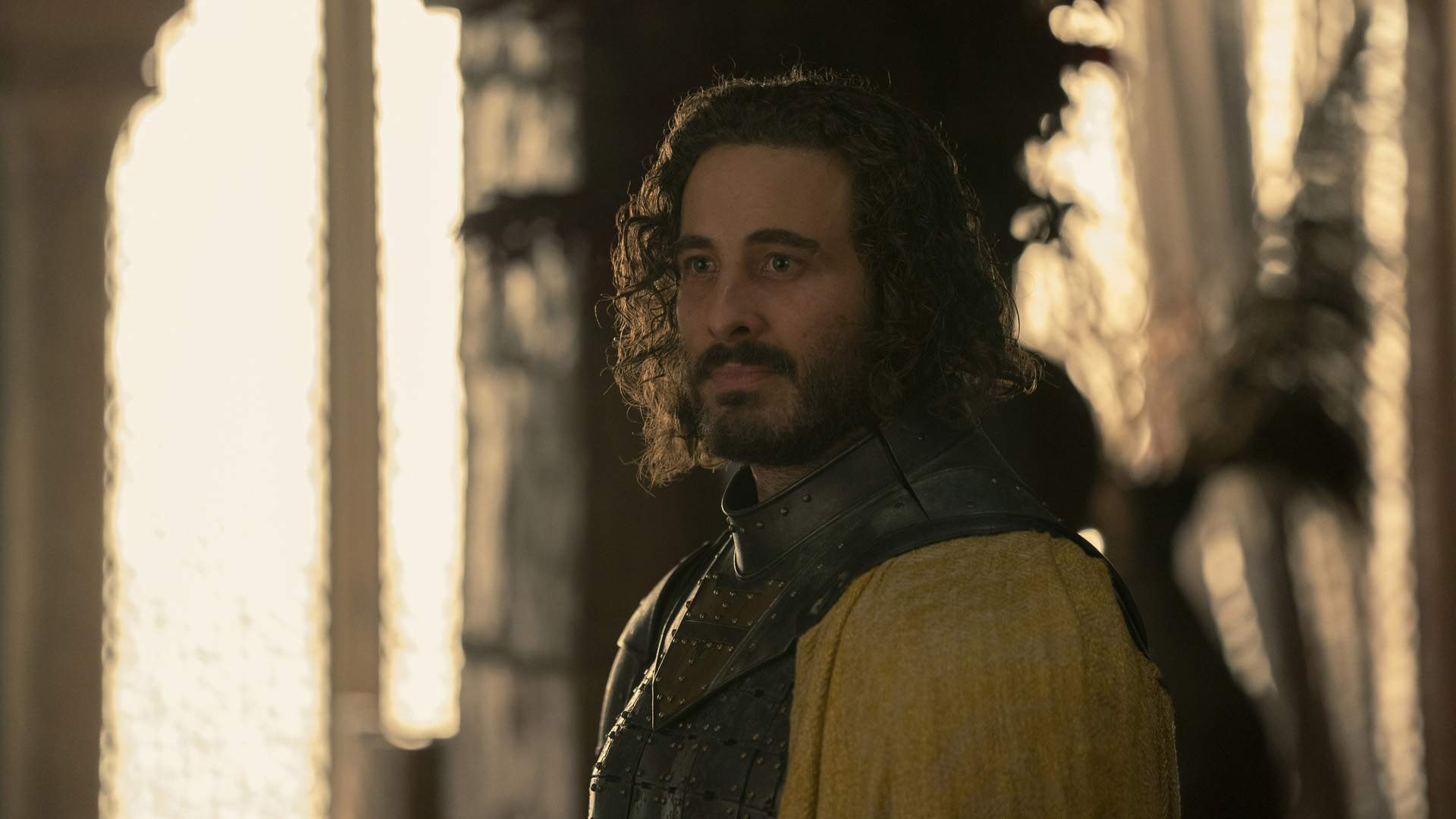
Across a body of work with no shortage of highlights, his two most recent projects still stand out. House of the Dragon had Corr playing the strongest man in the Seven Kingdoms and, amid the global attention that followed, sparked an onslaught of 'Six Things You Might Not Know About Ser Harwin Strong' and 'Ryan Corr Has Gone From Blue Water High to Westeros'-style articles. "I don't see myself as a six-foot-five strong knight, and sure as hell not the strongest man in the Seven Kingdoms," he says. "But the challenge was how do I replicate that in my idea of what strength is and what the essence is? And can I portray that?"
In Limbo, which is streaming now on ABC iView and airing weekly on ABC TV, swaps physical brawn for emotional vulnerability. After crane operator Charlie loses his lifelong best mate Nate (Bob Morley, Love Me), everything unsurprisingly changes, but Nate remains a presence in his life from the afterlife. "When I got the script, it really moved me. I found it laugh-out-loud funny, and really upsetting at times — and I thought it was really fresh. I don't think we've tried to deal with themes like this in quite this way before," Corr advises.
There's a sense of responsibility that comes with a series like In Limbo, as well as that challenge that Corr is always seeking. Thanks to its subject matter, the show always felt personal while he was making it, too. Corr chatted with Concrete Playground about all about the above, having a profound reaction to the project, balancing In Limbo's tones and themes, his past year and his career highlights so far.

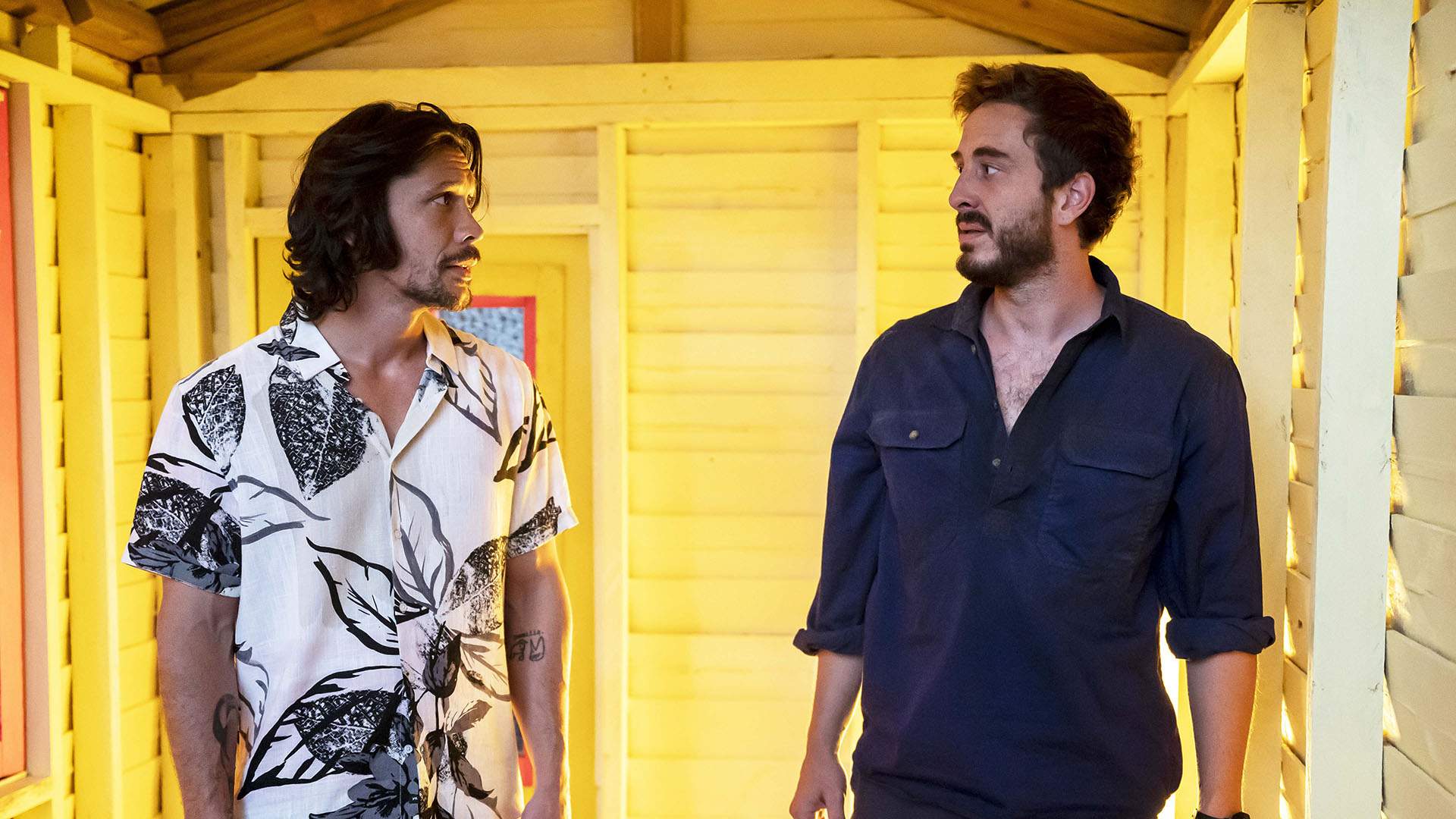
ON MAKING A COMEDY THAT'S THOUGHTFUL AND WEIGHTY — AND IN LIMBO'S PERSONAL FEEL
"There was a much longer rehearsal process than usual, where we just got to sit down together, weigh in and talk about what we were about to tackle subject-wise — and there were safety networks all around us while we did so — and also start to share and open up about our own lives and experiences, both direct and indirectly, to do with loss, so that we could develop trust together as people while we navigate these ideas. Because I think the series has to have heart.
I found that everyone in the making of it — the crew all up in Brisbane, everyone that read this script — had a profound reaction to it and said 'I want to be a part of this'. I think you can feel everyone leaning into it in the final product. I hope so.
I've, of course, experienced loss, as have most people that I know. I think it's a very personal tale. I very much based Charlie's relationship with Nate on some of my early childhood friends, who are a bridge past that now — we're not friends anymore, they're more like brothers and sisters, they are my family. So I very much know where that relationship lives, and the idea of losing one of them is the earth-shattering.
We all actively worked through it, communicating with each other, personalising what we've been through and were going through, so that we could trust each other — and so you can invest the series with that heart and that meaning. I don't think it's possible if you don't."

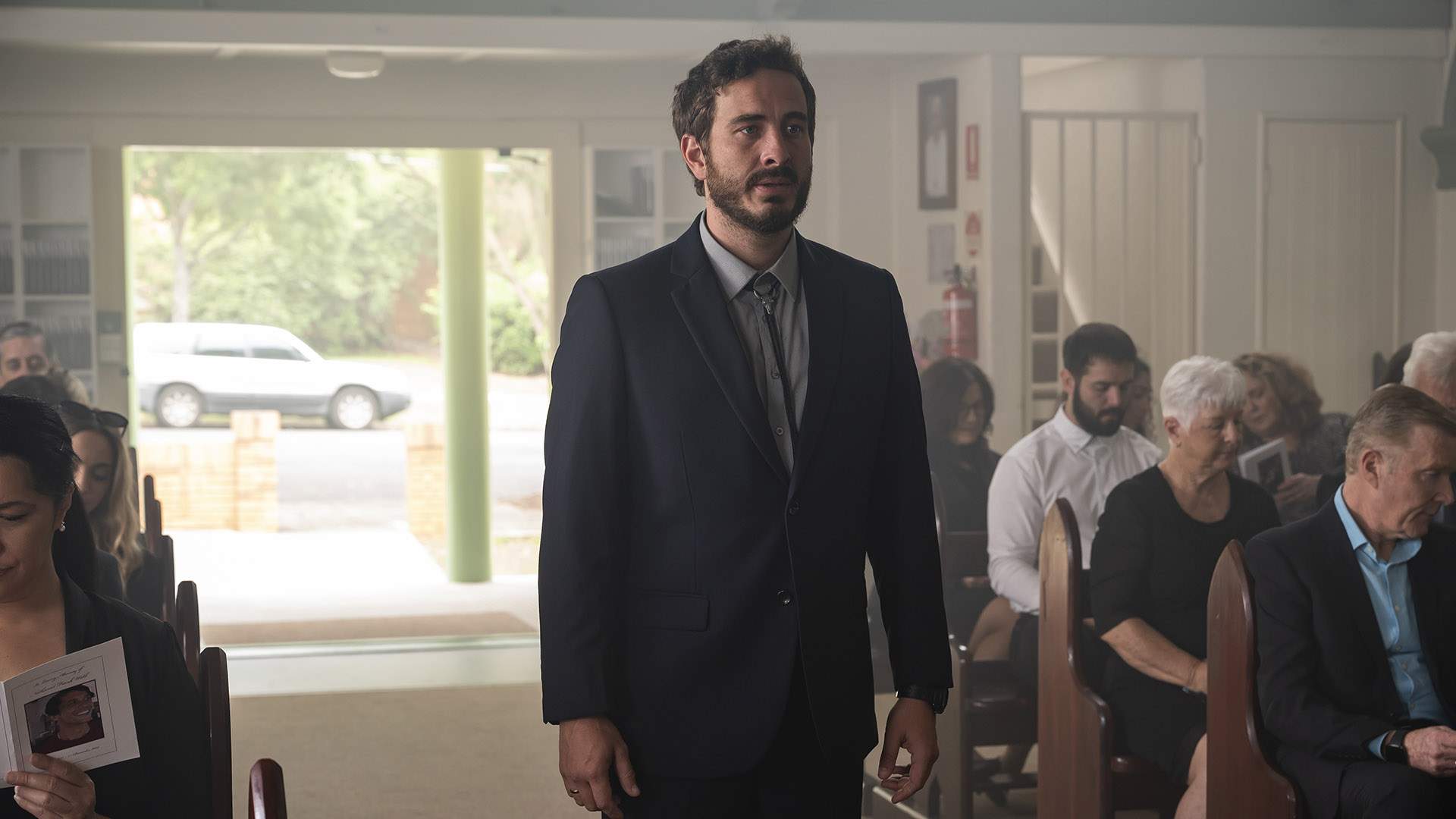
ON DRAWING UPON REALITY TO INFORM IN LIMBO'S MIX OF TONES AND GENRES
"When I lost my grandfather, I was sitting around with a group of my friends and family, and we're all holding hands as he was literally leaving. And he did something funny in some of his final breaths, he made a funny noise or something. And so I found that my family were all holding each other and crying, and then laughing all of a sudden.
We were saying goodbye to someone we love, and all of a sudden he made one of the funny noises and we laughed, and there was a wonderful lesson in that — it had both. And I think in life, it has both. And what In Limbo tries to explore is that — I think In Limbo is more about life than it is about death.
Strangely, in the losing of Nate, Charlie discovers more about himself in the pursuit of trying to find answers about Nate. He becomes closer to his family, and it exposes things, it brings things to the forefront that he may have not been dealing with previously. And in a strange way, Nate guides Charlie through — in death, Nate helps Charlie through his life.
And it's about the way that the people that are left continue to live, the way they come together, and the way they support each other and water those relationships and friendships, and help each other grieve and process. And that's what life is, you know? And within that, within this thing that we call life, there are often — at least I've found — moments of hysterical laughter, of mundane things that make you lose your shit laughing."

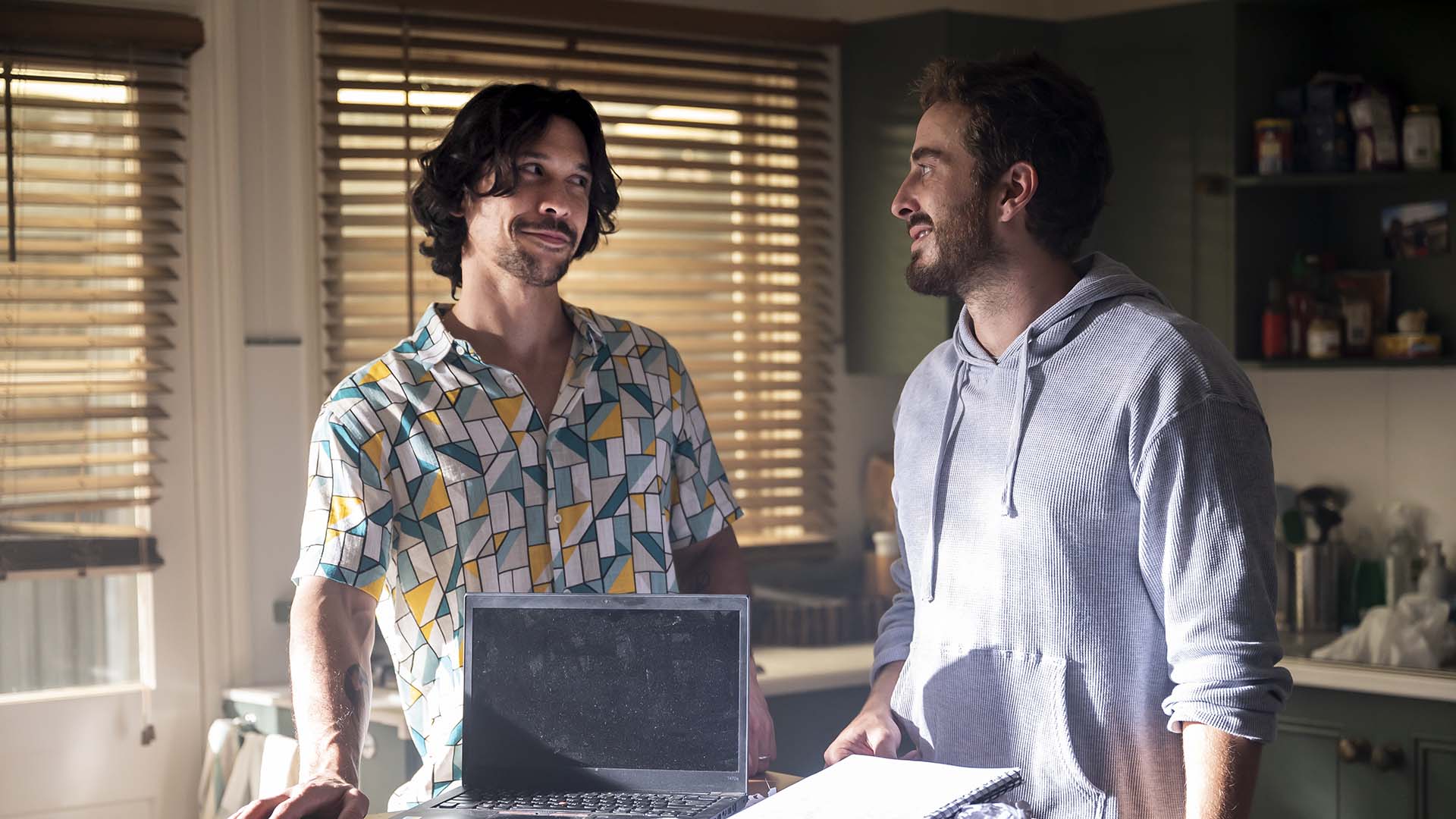
ON PREPARING FOR IN LIMBO
"Like with all characters, there are some parts that you research and some parts of yourself. I have some experiences with mental health myself personally, and with my family and with my friends. So it's not hard for me to go to places where I was in darker spaces with my anxiety and depression, and knowing what that felt like, and not being able to see the light.
One the things that In Limbo brings up is that it's not always visible. In fact, it's very, very rarely visible. And I remember, just simply for me personally, that it wasn't until I was going through some shit for a couple of years until I was like 'oh, I don't think I'm happy right now' or 'I think what I'm feeling is muted. I don't feel the highs. I don't feel the lows'.
I remember that being rather confronting, like 'oh [how long] have I felt like this for?". One of things that In Limbo tries to do is shed a bit of light on that. You ask more often if people are okay. When they say that they are, it's not always necessarily the full story. And it's about just trying a little further, it's about asking a little more and it's about checking on yourself.
Everyone in In Limbo, we all have to pull from our personal worlds. This is an intimate story, and it's about family and it's about loss. So researching things like this, you have to draw from things in your own life, and then have an environment where you can leave that at the door and feel safe to expose it with other people and be safe going home afterwards. I think they very much made that environment for us."

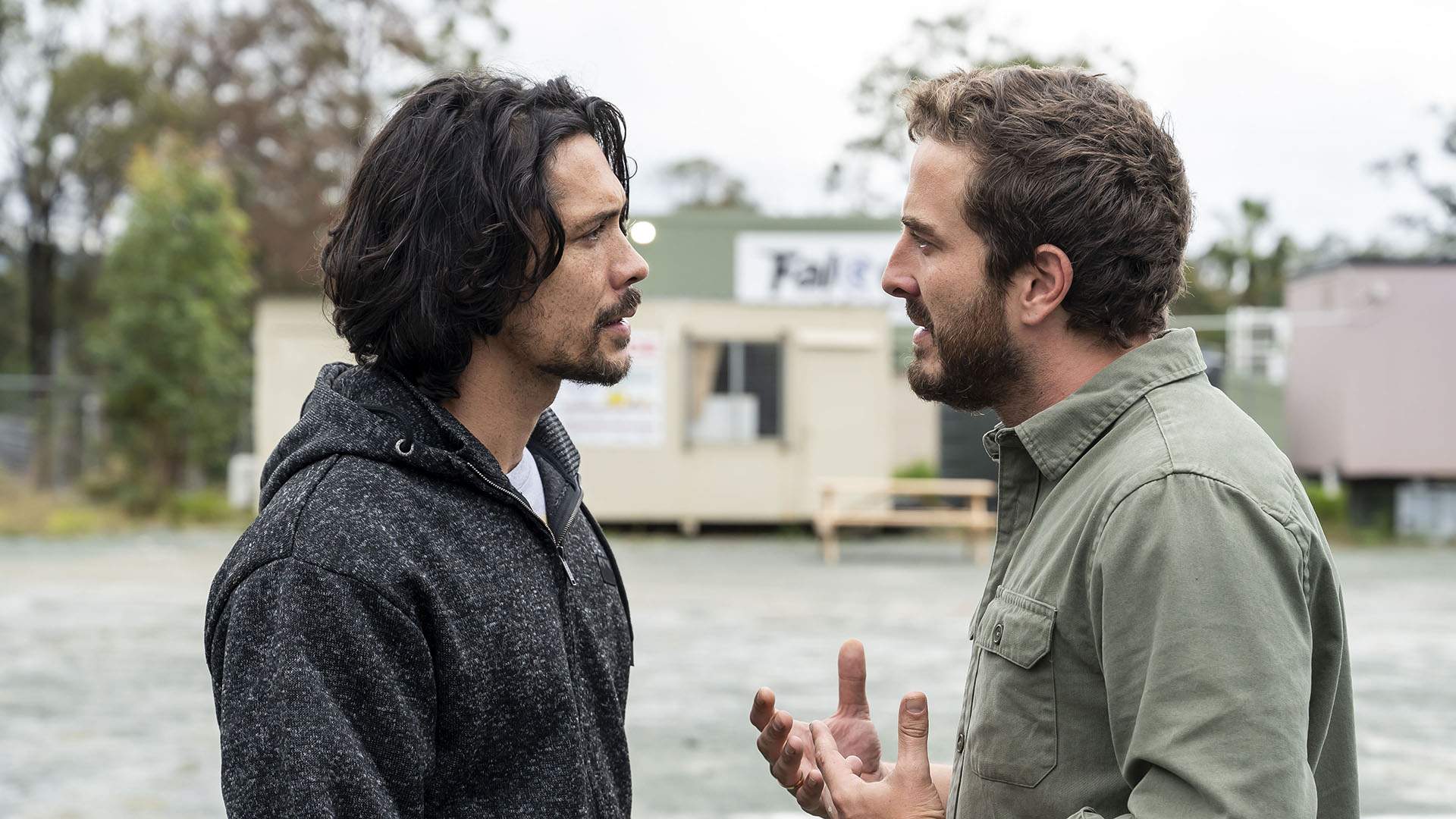
ON THE RESPONSIBILITY THAT COMES WITH TACKLING MENTAL HEALTH
"It's not our responsibility to give answers or to hammer over the head any of our ideas around this — it's about starting a conversation, and I think that everyone in the creative process very much took that responsibility on board, and tried to keep that close through the shooting of it as our as our main drive. Our number-one prerogative was to take that responsibility seriously.
You have responsibility to all characters you play. If you're doing it properly, it has to cost you something — and particularly with something like this, there's no phoning it in.
So we made sure that being comfortable around dealing with these things, both as performers and as people, was right the forefront. And that we weren't trying to hand people any simple answers."

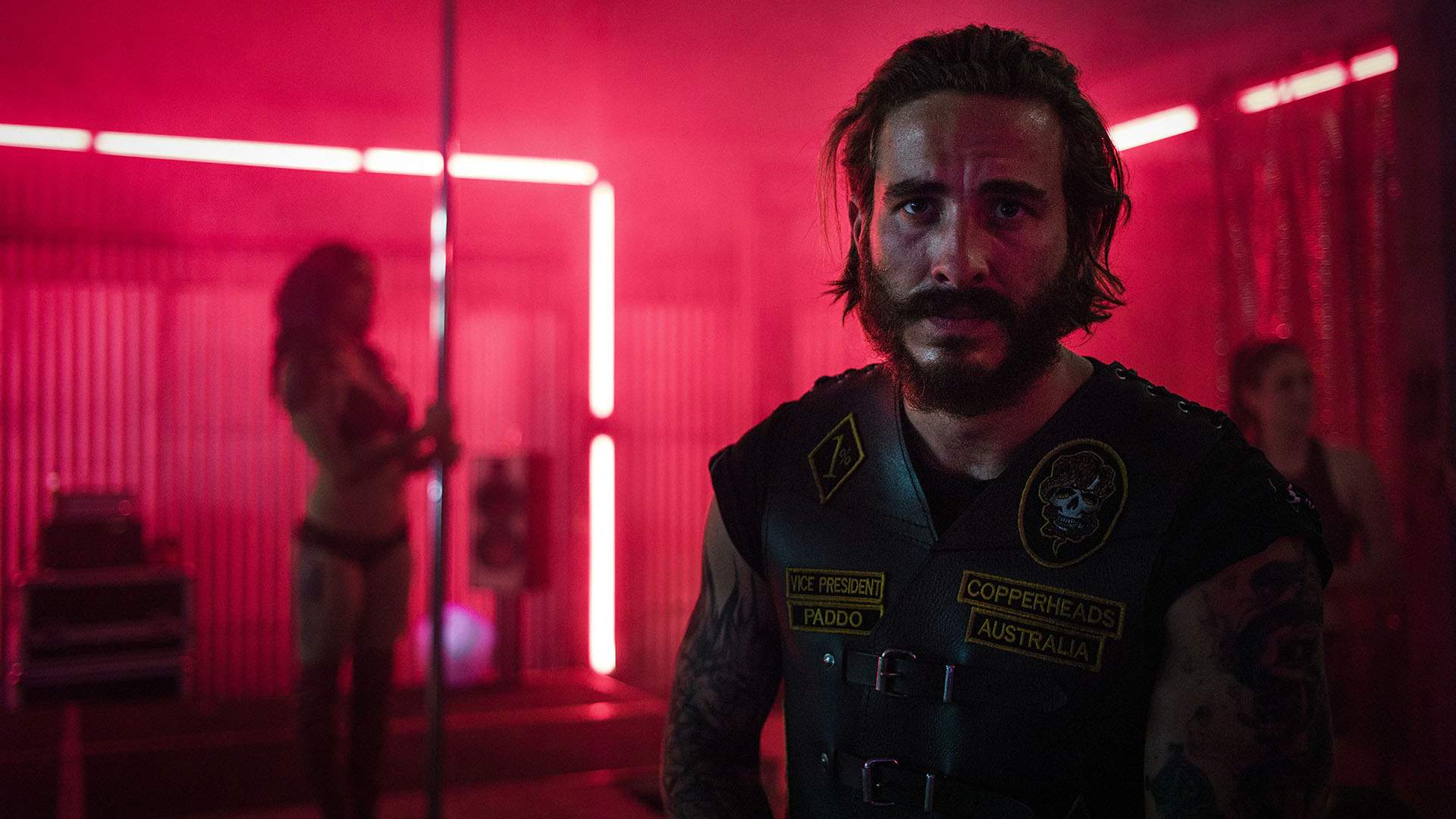
ON WHAT CORR LOOKS FOR IN A PART
"It can be a number of things, but usually something that challenges me or that I don't think I can do initially — something where I go 'all right, now we're gonna go over here'.
It's about challenge and primarily it's about chase. It's about the pursuit of great writing and great directors. When you have language on your side, when you have great ideas on your side, that's the pursuit of this industry. It's raising to those writers and it's raising to those ideas — not making it about yourself and saying 'this is how it is when I feel', it's about trying to play your part in the whole of the narrative.
It's really the pursuit of writing that excites me — and directors that, when you sit down and have meetings with them, the way they talk about their ideas gets you excited and inspires you, and you can see it as they talk. It's working with creatives who have a similar pursuit as I do."

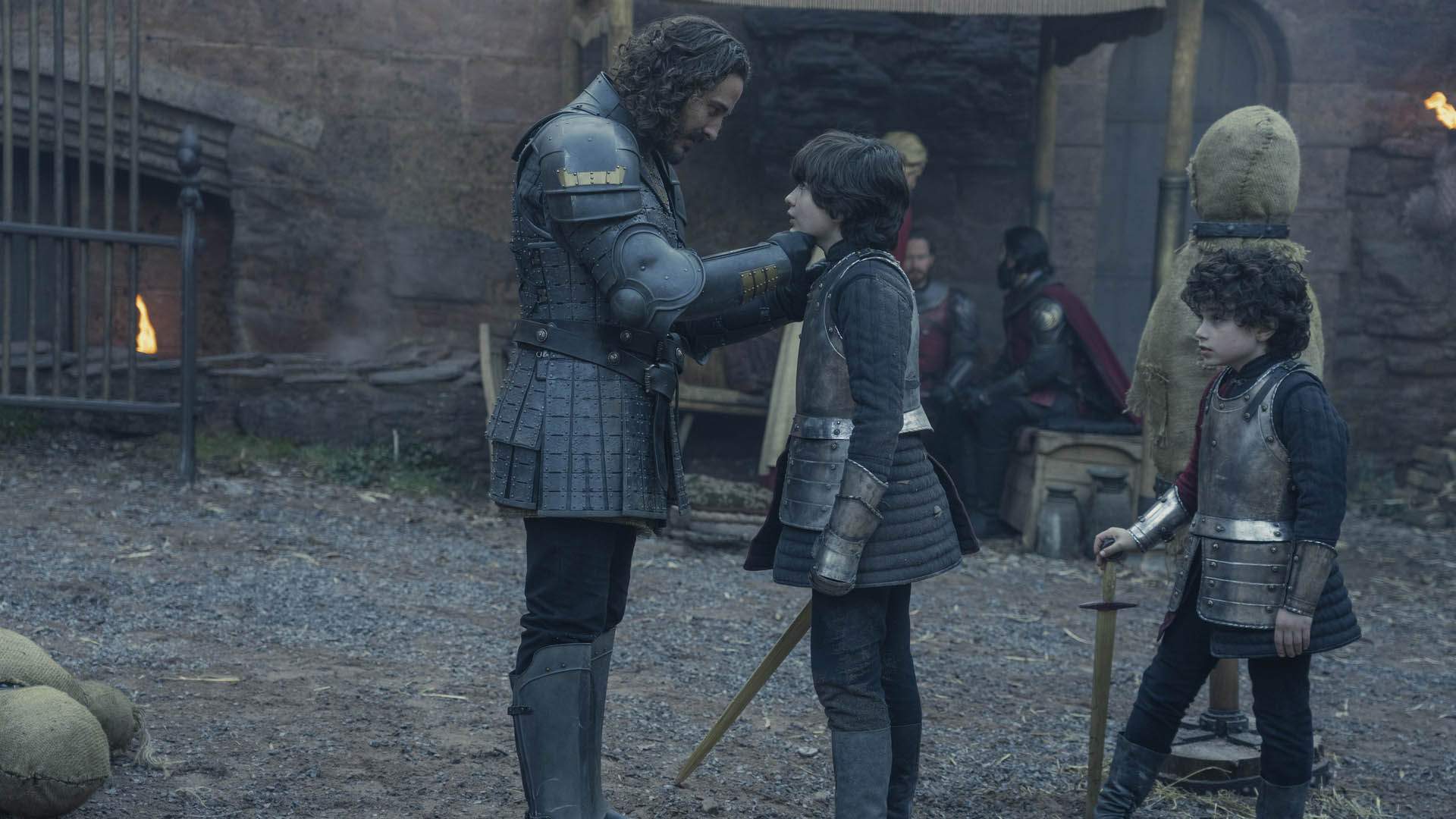
ON JUMPING FROM HOUSE OF THE DRAGON TO IN LIMBO
"Obviously there's a difference in the scale and the reach, but honestly there's not a big difference between In Limbo and Thrones. There's more people, but it's ultimately always the same job. In fact, if anything, I find that the the bigger they get and the more expansive, the less personal they become, and the less involved with the people you're working with.
You can shoot a scene over half a week [on House of the Dragon] — one scene of a sequence over half a week. On In Limbo, we're shooting 16 scenes the day and then waking up at 4am to do it again the next day. And we had bugger all time to do it in, like five weeks, so it becomes a completely different exercise in trusting each other.
[With House of the Dragon] you just expand upon that. Instead of going into a house that we've decked out in Brisbane, it's a giant setpiece that is an operational castle — you can walk up the stairs, and there's 30 people teaching someone dance for next week, teams and teams of people. It's the same thing extended upon, obviously, because there's huge amounts of money involved, and because the shows are so big.
I just tried to go in and fill Harwin's shoes the best way I knew how. There wasn't a huge amount of him in the book, so I had to fill in the lines.
That part of it was exactly the same as sitting in the lounge room with In Limbo… working through these scenes, mining them for the best ideas, workshopping the best ways to do it, rehearsing it and then getting out there and trying to give it our all."

ON THE PROJECT ON CORR'S RESUME THAT STANDS OUT
"Honestly, every one — but two things.
Kevin Jackson is my acting mentor who's just recently passed away — he was the acting teacher at NIDA for many, many years, and is responsible for framing the lives and artistry of many people that I know, including myself. I went at 17. I'd done teen shows, and I made the decision at that age — I was like 'I want take this seriously and I want to study it'.
So I took myself out of the industry, went to drama school and that's where I met a man in Kevin that taught me what great writing was and how what we did was above ourselves. Like I say, he is 'the writer is God'. He's the reason that I pursue writing the way that I do. It's not about how you feel, it's not about bringing it down to you. It's about pain reaching these ideas. Can you make something of these ideas? And therefore it's universal.
When I was growing up, I took a lot of my lessons, my understanding of emotion, my understanding of love, my understanding of grief, from a lot of the films that I inhaled. That was my go-to, that's what spoke to me and that felt important to me. And so, if I'm going to do it as my career, Kevin was very much a pivotal part of helping me understand what it is that we do.
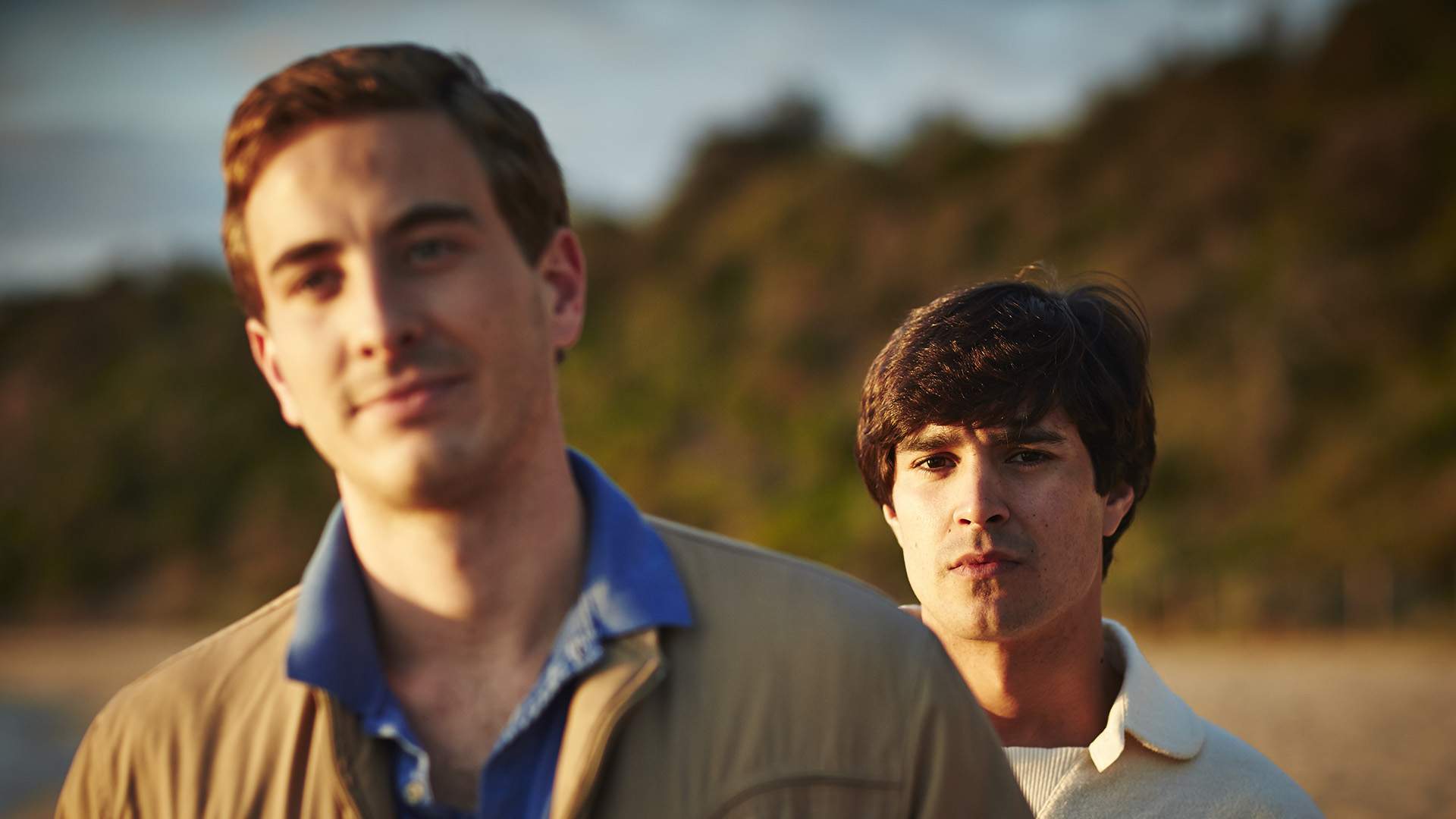
Also Holding the Man, I would say as an experience, as a film, working with [director] Neil Armfield, working with Tommy [playwright and screenwriter Tommy Murphy]. And having for the first time the yardstick of what I was doing, as my job slightly changed. It wasn't just 'here's my version of a character and I hope it's good' — it was someone's family. And I met that family, and I had them hand over their journals and their personal belongings, and I had his friends reach out from all throughout Melbourne. And we had the Victorian AIDS Council say, 'hey, can we can we do rehearsals here?'.
I was just overwhelmed with the amount of compassion and the amount of love that reached towards us in doing it. And it made me realise that my job here wasn't to do a good job — it was to represent a real person's memory and their legacy and their love to the absolute nth degree that I possibly can.
That felt important and, like with In Limbo, I felt a responsibility to the people that I was playing and to what it meant, and that really resonated with me throughout the years. It's not like you can have jobs like that all the time, but it really did entrench what this industry, what this thing that I call a job, what the arts can be and what it can do and how important it is."

In Limbo streams via ABC iView. Read our full review.
House of the Dragon streams via Binge. Read our full review.
